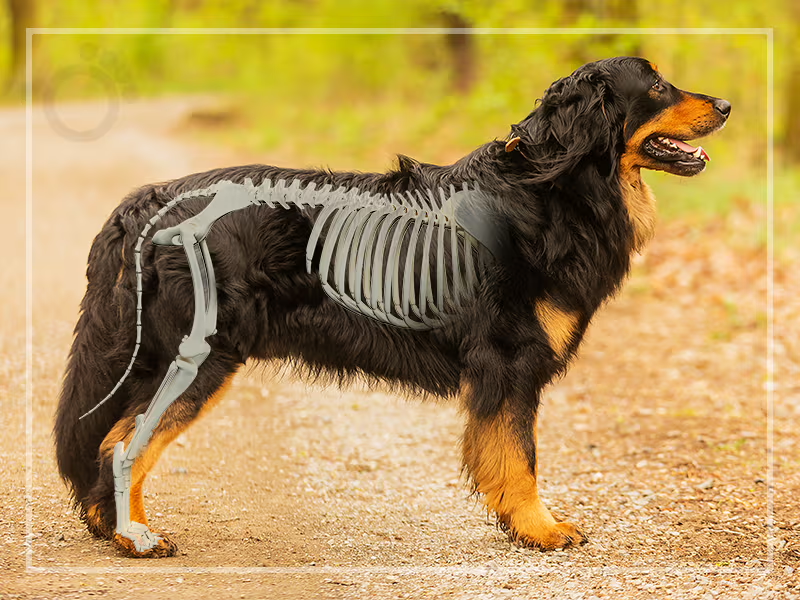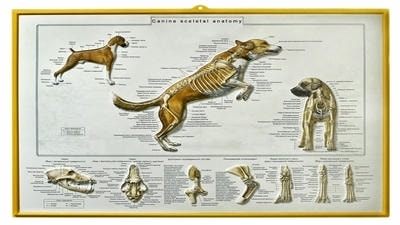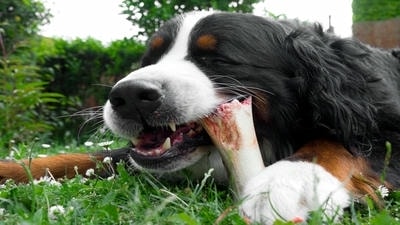
Pet bone health is a critical aspect of overall well-being, yet it’s often overlooked by many pet owners. Strong bones are essential for mobility, joint function, and overall quality of life. Two of the most important nutrients for maintaining healthy bones in pets are calcium and phosphorus. These minerals work together to support bone growth, density, and strength.
The balance between calcium and phosphorus is critical for optimal bone health. In dogs and cats, the ideal calcium-to-phosphorus ratio is approximately 1:1 to 2:1. An imbalance in this ratio can lead to bone disorders and other health issues.

High-quality commercial pet foods are formulated to provide the right balance of calcium and phosphorus. Look for products that meet the nutritional standards set by organizations like the Association of American Feed Control Officials (AAFCO).
If your pet’s diet is lacking in calcium or phosphorus, your veterinarian may recommend supplements. However, it’s important to avoid over-supplementation, as excessive amounts of these minerals can cause health problems.
Young pets are in a critical stage of bone development, and adequate calcium and phosphorus intake is essential for proper growth. Deficiencies during this stage can lead to skeletal disorders such as rickets or developmental orthopedic diseases.
Maintaining bone health in adult pets is important for preventing fractures and joint issues. A balanced diet and regular exercise can help keep bones strong and healthy.
As pets age, their bones may become weaker and more prone to fractures. Senior pets may also develop conditions like osteoporosis or arthritis. Ensuring they receive proper nutrition and regular veterinary check ups can help maintain their bone health in their golden years.

Osteoporosis is a condition characterized by weakened bones and reduced bone density. It is more common in older pets and can lead to fractures and mobility issues.
Rickets is a bone disorder caused by a deficiency of calcium, phosphorus, or vitamin D. It is most commonly seen in young pets and can result in deformed bones and stunted growth.
Hip dysplasia is a genetic condition where the hip joint doesn’t develop properly. While it is primarily influenced by genetics, nutritional imbalances, especially in calcium and phosphorus, can exacerbate the condition.
Weak bones are more prone to fractures, which can occur due to trauma, falls, or even normal activities in pets with poor bone health.

Choose high-quality commercial pet food that meets AAFCO standards or consult your veterinarian for guidance on a homemade diet.
Avoid giving your pet too many calcium-rich treats or supplements without veterinary advice, as this can disrupt the calcium-to-phosphorus ratio.
Your vet can assess your pet’s bone health through physical exams, blood tests, and X-rays. They can also recommend dietary adjustments or supplements if needed.
Overfeeding can lead to obesity, which puts extra stress on your pet’s bones and joints. Maintain a healthy weight through portion control and regular exercise.
Vitamin D helps the body absorb calcium from the diet. Without sufficient vitamin D, pets cannot utilize calcium effectively, leading to weakened bones.
Magnesium is essential for the proper absorption and metabolism of calcium and phosphorus. It also plays a role in bone formation and muscle function.
Omega-3 fatty acids have anti-inflammatory properties that can support joint health and reduce the risk of bone-related disorders.
Regular exercise helps strengthen bones and muscles, improves joint flexibility, and maintains a healthy weight. Activities like walking, running, and playing fetch are great for promoting bone health.
While exercise is important, avoid overexertion, especially in young pets, as it can lead to bone and joint injuries.
Large breeds, such as Great Danes and German Shepherds, are more prone to bone and joint issues like hip dysplasia and osteoarthritis. Ensure they receive a balanced diet and avoid overfeeding to prevent rapid growth, which can strain their bones.
Small breeds, such as Chihuahuas and Dachshunds, are more susceptible to fractures due to their delicate bones. Provide a diet rich in calcium and phosphorus to support their bone health.
Fact: Excessive calcium can lead to health problems, such as kidney stones and bone deformities. Always aim for a balanced calcium-to-phosphorus ratio.
Fact: All pets require calcium and phosphorus throughout their lives to maintain strong bones and overall health.
Fact: Most pets can meet their calcium and phosphorus needs through a balanced diet. Supplements should only be used under veterinary guidance.
Calcium and phosphorus are essential nutrients for maintaining strong and healthy bones in pets. By understanding their roles and ensuring your pet receives the right balance of these minerals, you can support their bone health and overall well-being. Regular veterinary checkups, a balanced diet, and appropriate exercise are key to preventing bone-related issues and ensuring your pet enjoys a long, active life.